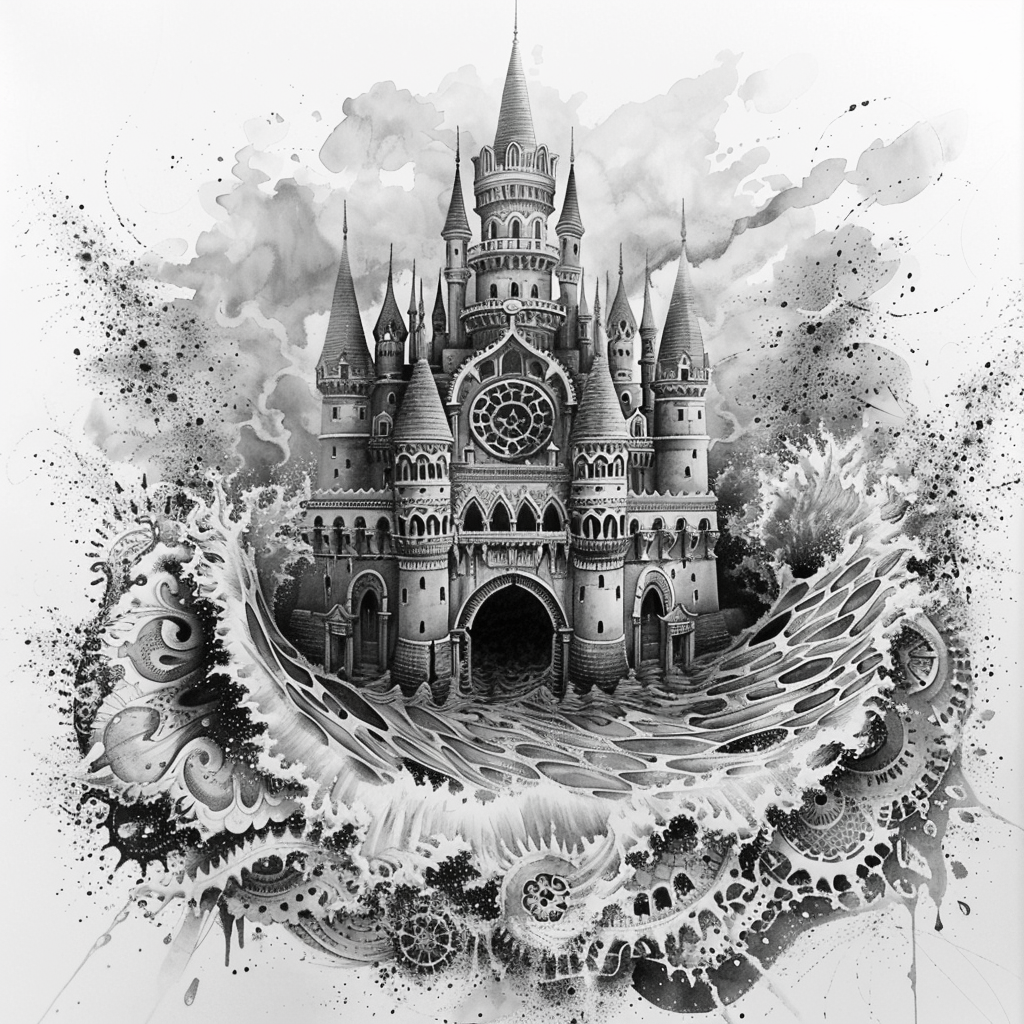A Shining Palace Built Upon the Sand
Sitting on a beach in Nova Scotia, watching kids play in the sand, I’m remembering a modern parable that Harold Kushner tells in his book, When All You’ve Ever Wanted Isn’t Enough.
“I was sitting on a beach one summer day, watching two children, a boy and a girl, playing in the sand. They were hard at work building an elaborate sandcastle by the water’s edge, with gates and towers and motes and internal passages. Just when they had nearly finished their project, a big wave came along and knocked it down, reducing it to a heap of wet sand.
“I expected the children to burst into tears, devastated by what had happened to all their hard work. But they surprised me. Instead, they ran up the shore away from the water, laughing and holding hands, and sat down to build another castle.”
All the things we build, all our elaborate schemes for life are sand. Eventually a great wave washes them away. We deny that fact until we can’t any longer—and then we curse it. The revelation, for Kushner, was how happy the children were to bequeath their castle to the waves. They had each other. In their innocence, the boy and girl seem to know that only other people matter, only love matters.
Easy for children at play, we immediately object. The rest of us grown-ups live in the real world where castle losses are devastating. In my ministry I’ve stood outside the wreckage of many houses, some leveled by fire, some by water. Without exception, the suffering people feel two things: anguish at the terrible loss, and—within days, if not hours—an overwhelming sense of gratitude for what cannot be taken from them. They hug their loved ones fiercely. The loss becomes this terrible gift, without which their eyes would not have been opened.
In other words, our “adult” objection to the innocent carelessness of children is mistaken. Somehow, as Jesus insisted, we have to “become like a little child.” Edna St. Vincent Millay wrote a two-line poem that has always intrigued me. She takes Jesus’ parable—about the foolish man who built his house upon the sand, and the wise man who built his house upon the rock—and flips it.
Safe upon the solid rock the ugly houses stand:
Come and see my shining palace built upon the sand!
Millay brilliantly recaptures the spirit of those children. She doesn’t just accept the impermanence of all things—she exults in it! She builds her shining palace exactly where the boy and girl built their castle, knowing the rising tide and the waves would soon wash it away. Here is one soul who knows what inevitably perishes, and what lasts forever. Tibetan Buddhist monks spend days or weeks creating intricate and elaborate mandalas from colored sand, and then ceremonially dismantle this thing of beauty—that I would try to frame and keep forever!—and return the sand to the sea.
Summer often takes us to the beach, especially if we are fortunate enough to have little children among us. Perhaps, instead of watching them with their plastic shovels and buckets, we could lend a hand and help build a “shining palace built upon the sand.”

David, as usual, your post is full of good insights and great writing. Great writing like “bequeath their castle to the waves.”
Amen to celebrating the inevitable, loving fate, amor fati.
A few years ago, I constructed an affirmation which I said again this morning.
“With God‘s help, unhealthy resistance is bell, calling me to prayer, prompting me to move from negative through neutral to positive, from resistance through acceptance to embrace.”
That’s a beautiful affirmation, Michael. It’s a poem in its own way. And it aligns wonderfully with the spirit of Kushner and Millay.
Beauty and joy don’t require duration. Isn’t that marvelous! Thanks, David